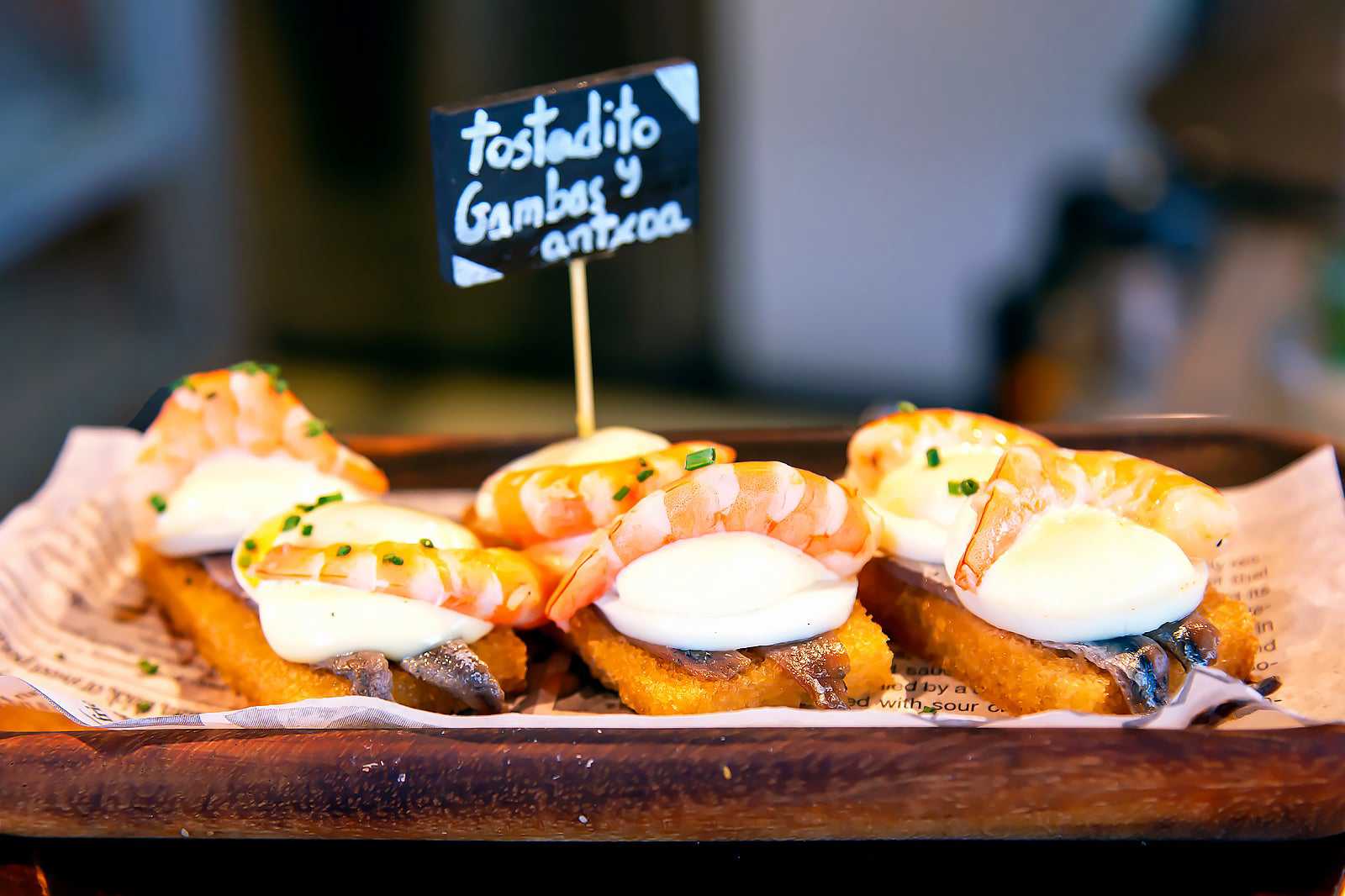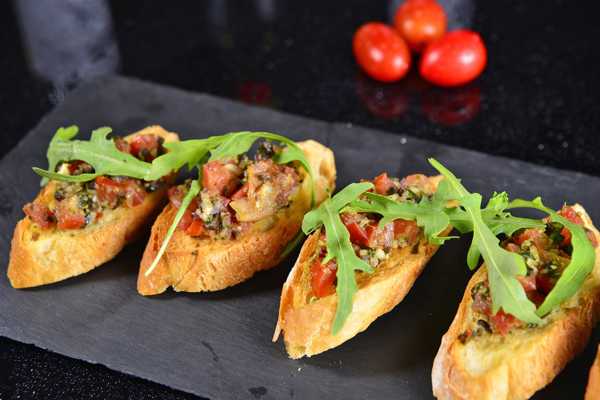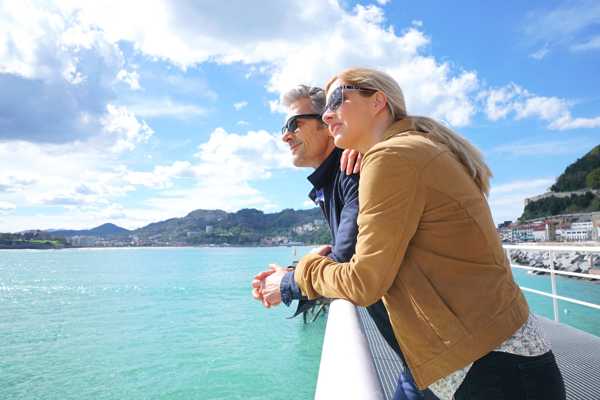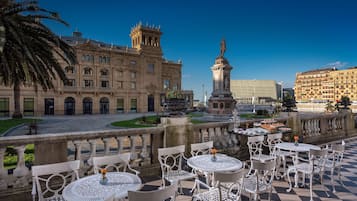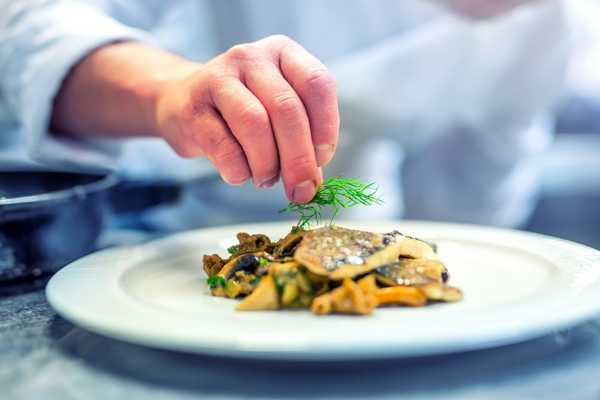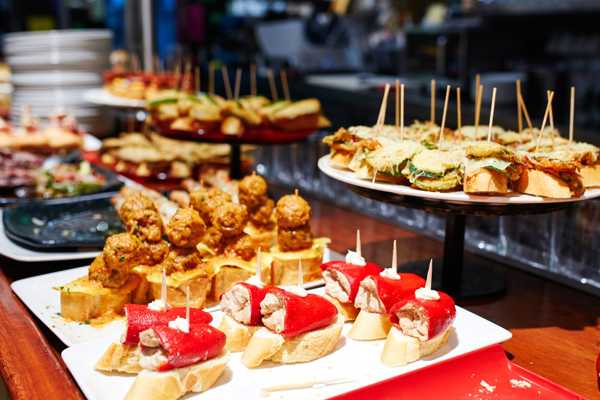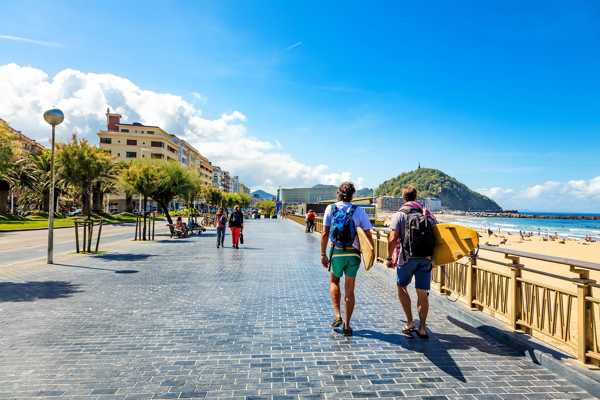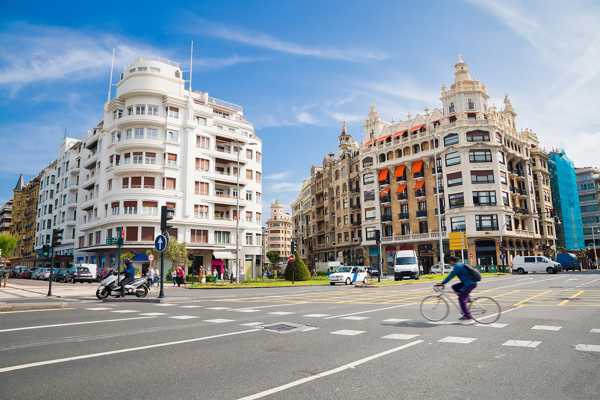Local dishes from San Sebastian showcase the flavours from the Atlantic and Pyrenees that surround the Spanish town. Foodies travel from far and wide to sample the flavours from the unique Basque kitchen that makes its home in the pintxo restaurants and cantinas of the town.
San Sebastian’s historic centre is gilded with grand mansions and bustling squares, as well as excellent restaurants serving local specialities. This guide should be a good reference for when you come to order, offering hints on top local dishes in San Sebastian, from smoky peppers to highland cheeses.
- 1
La Gilda
San Sebastian's iconic small plate

- Eten
La Gilda is one of the most iconic dishes of San Sebastian. It's served all over the Basque Country and is actually hailed as one of the region's first-ever pintxo – a type of small dish that recalls the tapas of south Spain. There's no doubt that the best place to sample the staple is in the classic mid-century watering hole-cum-eatery of Bar Casa Vallés.
That's where the plate was first invented, apparently when a regular customer began to combine zingy Guindilla peppers, pickled olives, and tangy anchovies on a single toothpick. The result is a hit of spice and sea salt that could easily be a metaphor for the town itself – fiery and fun and forever washed by the ocean.
- 2
Bolinhos de bacalhau
The sea and the land

- Eten
Bolinhos de bacalhau (seafood fritter) offers a hit of the Basque Country's maritime and inland flavours. It’s served as both a tapa and a snack, matching well with a cold beer and a view of the glimmering beachfront of San Sebastian.
The recipe fuses hearty mashed potato dough that's infused with pepper and garlic, plus a good hit of local salt cod – something of a speciality along the whole north coast of Spain and around Portugal. That's then shaped into balls and deep-fried until golden. The seafood fritters are also garnished with parsley and olive oil.
- 3
Txangurro a la donostiarra
The unique spider crab of Spain

- Eten
Txangurro a la donostiarra is the region's famous baked spider crab. It makes the most of the uber-succulent meat of a unique crab species that are found along the Atlantic coast of Spain, France, and even the UK.
Preparing this dish is pretty long-winded but it's all about squeezing out as much of that ocean flavour as possible. Chefs begin by de-shelling the crab and scooping out its meat. That's sizzled up with garlic and butter, flambeed in cognac brandy, and mixed with sauteed leeks. Then, it's added back into the empty crab shell to be baked in the oven before serving.
- 4
Txuleta
One of Spain's finest pieces of meat

- Eten
Txuleta is the Basque Country's answer to the Angus beef of Scotland and the Kobe beef of Japan – arguably the finest cut in the country. It's sourced from cattle that's traditionally reared and grown in the Galician region of western Spain. However, it's the chefs of cities like San Sebastian who have made this such a famous cut.
Txuleta is unique in that it's known as an aged steak. That means it comes from cows that are at least 8 years of age, as opposed to the usual 3 or 4. The result is a fatty and highly marbled piece of meat, which becomes juicy when sizzled in garlic butter on a skillet.
- 5
Idiazabal
Calling all cheese lovers

- Eten
Idiazabal takes over where La Mancha's Manchego leaves off. The protected dairy staple of the Basque Country, it's a nutty, smooth, butter-like cheese that's made from the milk of Carranzana sheep. According to the official Denomination of Origin, there are only 6 villages where it can be produced in line with the traditional methods, all of which are within striking distance of San Sebastian.
There are many ways to enjoy Idiazabal. You can eat it in chunks with a dip of sweet preserve or grate it on pasta and bread. You can even smoke it to bring out the flavour even more and serve that with a curated list of local wines.
- 6
Kokotxas de merluza
A taste of the Atlantic

- Eten
Kokotxas de merluza is also known as fish cheeks. Truth be told they aren't cheeks at all, but rather a gland of the hake fish. It’s a commonly used seafood cut in this corner of the Bay of Biscay. There are many ways to serve them, but the most popular is lightly fried with a salsa verde drizzled on top.
Most chefs begin by sautéing said cheeks in garlic-infused oil. Often, a handful of chopped parsley is added for freshness. The finishing touch is an olive oil and lemon infusion with extra herbs.
- 7
Anchovies
One of San Sebastian’s must-try delicacies

- Eten
Anchovies are a staple part of the diet all over the Iberian Atlantic coast, all the way from the Basque Country to central Portugal. But the regions of Donostia San Sebastian and neighbouring Cantabria are known to have some of the very best of the bunch.
The anchovies are usually preserved in brine or vinegar and served straight from jars or tins. They're at once tangy and salty, chewy but basically boneless. For some of the most famous anchovy-based dishes in the city, head down to Txepetxa, a retro bar where the seafood is paired with plenty of ice-cold Cerveza.
- 8
Torrija
Spanish-style French toast

- Eten
Torrija is Spain's version of the ever-popular breakfast staple of French toast. And it's not just for the morning in these parts, either – the locals of San Sebastian will often chow down on these sugar-topped cuts of baguette after their main evening meal or even for lunch.
The method of preparing torrija is simple but sweet. Take a slice of stale bread and dip it in milk that's been dusted with nutmeg, then batter the whole thing in beaten egg and olive oil. The finished product is dusted with sugar and spices, sometimes served with a cup of melted chocolate for good measure.
- 9
Talo con chistorra
Fast food with a hint of Mexico

- Eten
Talo con chistorra roughly translates to 'tortillas with sausage.' That's exactly what you get from this much-loved San Sebastian fast food. It really is just a sausage wrapped in a flatbread. But there are some specific things to remember.
This flatbread is made with cornflour instead of wheat. That makes it more similar to the Mexican tortilla than the ones commonly found in Europe. The sausage that's wedged inside should be a chistorra de Navarra, a type of raw-cured sausage. It’s a blood-red mix of pork belly and fat with infusions of paprika and garlic.
- 10
Piquillo pepper
Swap heat for smokiness

- Eten
The Piquillo pepper is a native chilli of northern Spain. It's grown by the bucketload in the highland town of Lodosa, less than 2 hours' drive from San Sebastian. It’s the base for a much-loved pintxo dish that's both sweet and earthy. The peppers are also fantastic additions to soups and salads, especially during the fresh harvest season between September and December.
A plate of Piquillo peppers is a great addition to a tapas smorgasbord in San Sebastian. It’s usually cooked over open coals or packed with cheese. The peppers themselves aren't hot at all. Instead, they are smoky, oily and rich in flavour.
